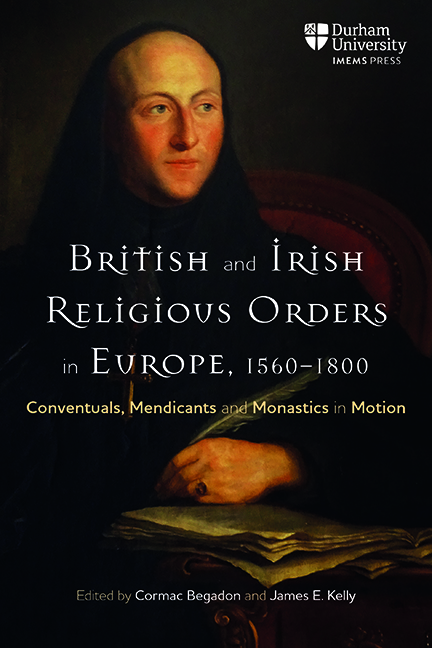 British and Irish Religious Orders in Europe, 1560-1800
British and Irish Religious Orders in Europe, 1560-1800 6 - Cloistered Politics: English Benedictine Nuns and the Stuarts, 1600–1700
Published online by Cambridge University Press: 07 October 2022
Summary
On 31 January 1632, Henrietta Maria, queen consort of England, sent a brief missive to Isabella Clara Eugenia, the infanta of Spain and Portugal, concerning quarrels over spiritual direction within the English Benedictine convent at Brussels. Far from being a solely private matter, the nuns’ vitriolic disputes over the governance of Abbess Mary Percy and Anthony Champney, the house's ordinary confessor, had spilled over into the public domain and scandalised Catholics throughout Europe. The papal nuncio in Brussels was charged with settling the matter, and Henrietta Maria hoped that Isabella could ensure a swift conclusion to the dispute in order to preserve the reputations of Percy and Champney:
first, he [the nuncio] should take particular care that the credit and reputation of the abbess, who is a lady of noble extraction, and of irreproachable conduct, should not be damaged in any way, and then afterwards that the innocence of a certain doctor in theology who (from what I hear) is a person both of great knowledge and good life, should not be overwhelmed by the calumnies of evil wishers.
Henrietta Maria's intervention is remarkable for several reasons. First, it reveals that news of the dissension at Brussels had reached peak saturation in the nuns’ native country. Arguably the single most influential Catholic person in England in secular terms, the queen clearly took a personal interest in the outcome of these notorious clashes. More importantly, a member of the royal family was attempting to involve herself in the affairs of an English convent on foreign soil, an institution that had been viewed as inimical to the English government under James I. Finally, this letter is the earliest surviving evidence of the Stuarts’ interactions with English Benedictine nuns, initiating a series of encounters that would shape the political views of the women who joined the six English Benedictine convents on the Continent, located at Brussels, Cambrai, Dunkirk, Ghent, Paris and Pontoise. Cambrai, Dunkirk, Ghent, Paris and Pontoise.
This essay explores the intertwined history of the Benedictines and the Stuarts during the seventeenth century in order to complicate scholarly understandings of the political lives of exiled English nuns.
- Type
- Chapter
- Information
- British and Irish Religious Orders in Europe, 1560-1800Conventuals, Mendicants and Monastics in Motion, pp. 121 - 140Publisher: Boydell & BrewerPrint publication year: 2022


